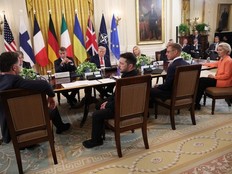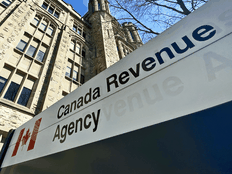Canada's immigration system must put national security ahead of applicants: Expert
"We need to get back to a system that's sane, we need to get back to a system that's secure," said Toronto Immigration Lawyer Sergio Karas

Article content
OTTAWA — Canada’s immigration framework needs to put national security ahead of the interests of applicants.
That’s among many issues experts say need to change as Canada wrestles with what they say is decades of ineffective and damaging immigration policy, as the country deals with increased global security threats from bad actors.
“We need to get back to a system that’s sane, we need to get back to a system that’s secure,” Toronto Immigration Lawyer Sergio Karas, of Karas Immigration Law, told the Toronto Sun.
“Security for Canadians and Canadian residents should be the first priority, not the last priority. Security should be first and the applicant’s application should be second.”
As Iran’s Islamic theocratic regime staggers under Israeli and American attempts to dismantle the terror state’s nuclear weapons program, reports of officials and members of the regime’s Islamic Revolutionary Guard Corps (IRGC) taking refuge in Canada are growing.
In addition, concerns are also being raised over properly screening thousands of Palestinian refugees expected to stream into Canada, and if they hold undisclosed links to Palestinian terror groups like Hamas and the far-left Popular Front for the Liberation of Palestine (PFLP) — the mother organization of Canadian terror group Samidoun.
Karas pointed to the case of Palestinian terrorist Mahmoud Mohammad Issa Mohammad, who took part in the deadly 1968 hijacking of an El Al airliner in Athens.
Convicted and imprisoned in Greece, he was soon freed after a different Palestinian terror group hijacked another plane and threatened to kill everyone on board if Mohammad wasn’t released.
Mohammed immigrated to Canada in 1987, without disclosing his criminal history and ties to Palestinian terrorism.
After his lies were discovered, he filed a refugee claim before deportation proceedings could commence — sparking a nearly 25-year legal battle to stay in Canada, insisting he wasn’t a terrorist but a “freedom fighter” in battle with Israel.
Mohammad was finally deported in 2011, with observers describing his case as indicative of everything that’s wrong with Canada’s immigration system.
Karas said that with the Iran threat looming, the time has come for Canada to finally start taking the problem seriously.
“This is extremely concerning right now, because we have an Iranian community that by and large opposes the current regime,” he said, pointing out IRGC’s close ties to Islamic terror groups like Hamas, Hezbollah and the Houthis.
“They are the primary targets of these IRGC agents and mullah sympathizers.”
Karas recalled the system being taxed in the 1990s after the fall of the Soviet Union, as well as conflicts in former Yugoslavia and Sri Lanka.
“They were all going through CSIS interviews, and applications sometimes were stuck for three or four years in Moscow and Kyiv because there were concerned that a lot of these newly-minted multi-millionaires were corrupt or part of organized crime,” he said.
“But now it seems the security apparatus is stretched so thin that they just can’t keep up … it doesn’t inspire a great deal of confidence in the ability of the government of Canada to vet people.”
Karas said Canada’s immigration bureaucracy has grown far too big, causing the government to do some dangerous corner-cutting.
“During the Trudeau years, the federal government created a lot of temporary programs that increase the pressure on the system,” he said.
“Canada should concentrate on increasing security and vetting people properly, because we live in a different environment now.”
bpassifiume@postmedia.com
X: @bryanpassifiume











Postmedia is committed to maintaining a lively but civil forum for discussion. Please keep comments relevant and respectful. Comments may take up to an hour to appear on the site. You will receive an email if there is a reply to your comment, an update to a thread you follow or if a user you follow comments. Visit our Community Guidelines for more information.